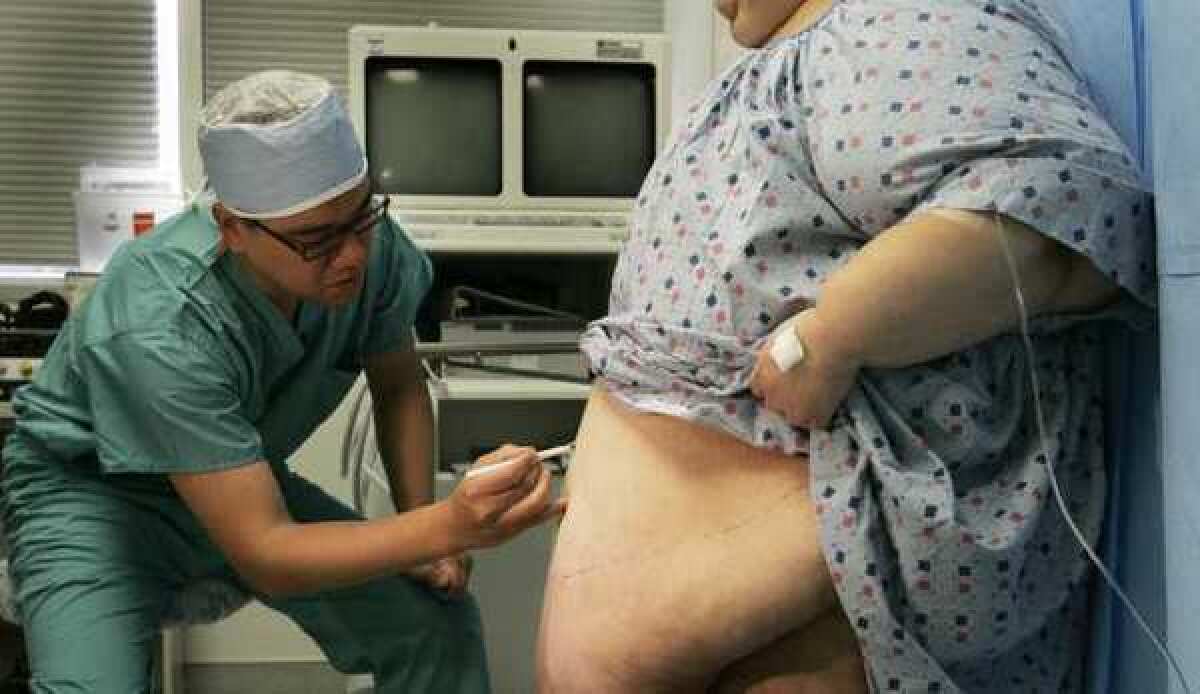Studies show promise for obesity surgeries

Bariatric surgery works, if measured in hospital days and medicine costs 20 years after the operation, according to one of the new studies on obesity published in the Journal of the American Medical Assn.
Gastric bypass surgery was shown to help severely obese patients, most of whom after six years had sustained an average weight loss of nearly 28% of their weight.
For six years after their surgery, the patients in a Swedish study used more hospital days after bariatric surgery than obese people who didn’t have the surgery, but in years 7 to 20 did not.
The Swedish study, to be published Wednesday, included 1,010 adults who had surgery and 2,037 who did not. The study looked at long-term healthcare use.
Of the surgery patients, 13% had gastric bypass, 19% gastric banding and the rest vertical-banded gastroplasty, a procedure no longer commonly performed. In the first six years after surgery, those people had an annual mean of 1.7 hospital days, compared with 1.2 for the others. But in years 7 to 20, both groups had a mean of 1.8 days. The surgery group incurred a mean annual drug cost of $930, the other group $1,123.
“Long-term outcomes for surgically induced weight loss from the Swedish Obese Subjects study have demonstrated sustained weight loss, reduced incidence of diabetes, cardiovascular events and cancer, as well as improved 10- to 15-year survival,” the study says.
In the study of gastric bypass surgery after six years, “every cardiovascular risk factor that we studied had improved significantly or remained improved in the patients who had the gastric bypass surgery when compared to those who did not,” said Ted Adams, one of the researchers from the University of Utah School of Medicine who presented the findings at a briefing.
The study included 1,156 severely obese people, 418 of whom had the surgery. In the surgery group, diabetes remission rates were 62%, compared with 8% and 6% for two groups that did not have surgery.
The studies are part of a JAMA issue on obesity, which says that about 31 million people in the United States can qualify for gastric bypass surgery, a new procedure just a decade ago.
A third study, published in Archives of Surgery, compared gastric bypass surgery with another procedure, called biliopancreatic diversion/duodenal switch, or DS, for weight loss and other issues including sleep apnea and hypertension. The researchers looked at the results of 1,545 people who had DS and 77,406 who had gastric bypass.
The researchers found that although the less-common DS led to longer operations, more blood loss and longer hospital stays, the later outcomes were better: significantly higher percentage of excess body weight loss and better control of diabetes, hypertension and sleep apnea.
mary.macvean@latimes.com
@mmacvean on Twitter




